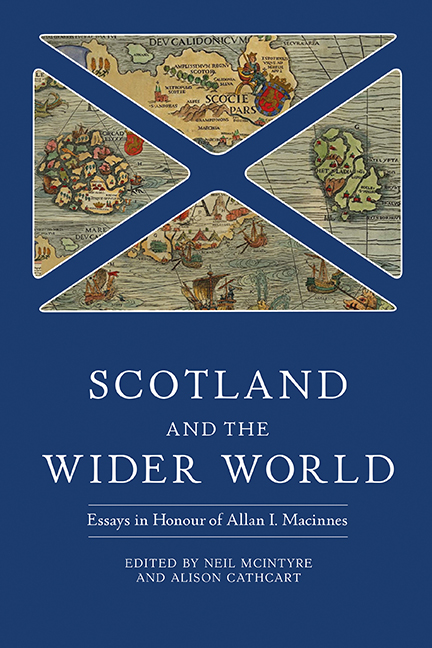Book contents
- Frontmatter
- Contents
- List of Contributors
- Preface
- List of Abbreviations
- 1 Covenants, Clans and Unions in Context: Celebrating the Scholarship of Allan I. Macinnes
- Part I Peoples and Cultures in Britain and Ireland
- Part II War, Religion and the House of Stuart
- Part III Union, Empire and Enlightenment
- List of Publications
- Index
- Tabula Gratulatoria
- Studies in Early Modern Cultural, Political and Social History
6 - Scotophobia in Later Stuart England
Published online by Cambridge University Press: 26 May 2022
- Frontmatter
- Contents
- List of Contributors
- Preface
- List of Abbreviations
- 1 Covenants, Clans and Unions in Context: Celebrating the Scholarship of Allan I. Macinnes
- Part I Peoples and Cultures in Britain and Ireland
- Part II War, Religion and the House of Stuart
- Part III Union, Empire and Enlightenment
- List of Publications
- Index
- Tabula Gratulatoria
- Studies in Early Modern Cultural, Political and Social History
Summary
A Scotchman’, so relates an English jestbook from 1679, ‘presented King James with a Turnip of an extraordinary and prodigious size, which is a root the Scotchmen love very much.’ James VI and I was so ‘pleased with the humor’ that he gave the Scotsman ‘an hundred pounds’. Another courtier thought to himself, ‘If the King … reward a Turnip-giver so liberally, what will he do to him that offers a greater present’, and gifted the king ‘a very excellent Race-horse’. Taken aback by such generosity, the King turned to his nobles and asked, ‘What shall we give this man?’ and when all were silent proclaimed, ‘By my soul men … let us give him the Turnip.’
As seventeenth-century jokes go, this is one of the better ones. It comes from a jestbook filled with jokes about foreigners, English religious minorities and country bumpkins. It was published in London (and also Amsterdam) at the height of the Exclusion Crisis in England – a crisis over whether to exclude the Catholic heir, James, duke of York and Albany, from the succession – and a time when Scotland was very much on English people's minds. But although the book is replete with stereotypical representations of the French, Dutch, Spanish, Welsh, Puritans, Quakers and Papists, it is less obvious what ideological work this story about a Scotsman and the Scottish King James is doing. It serves to remind the English, perhaps, that the Scots were so poor that they were forced to eat turnips, so embodying a stereotype, of sorts, of the Scots. It also plays on a common trope: the English commonly made fun of the food foreigners ate. Yet the joke is at the expense of the courtier, who was presumably English. The Scotsman does rather well out of the deal. The story reminds us that the notion of Scottishness was frequently invoked in English culture at this time. Yet, as this essay will show, it could be invoked in a variety of different ways.
The early modern English, we have long been taught, were deeply Scotophobic. According to Susan Doran, ‘ethnic prejudices against the Scots were commonplace’ in late Elizabethan England. Jenny Wormald found that ‘hatred of the Scots ran through every stratum of English society’ at the time of James VI’s accession to the English throne in 1603.
- Type
- Chapter
- Information
- Scotland and the Wider WorldEssays in Honour of Allan I. Macinnes, pp. 84 - 98Publisher: Boydell & BrewerPrint publication year: 2022



